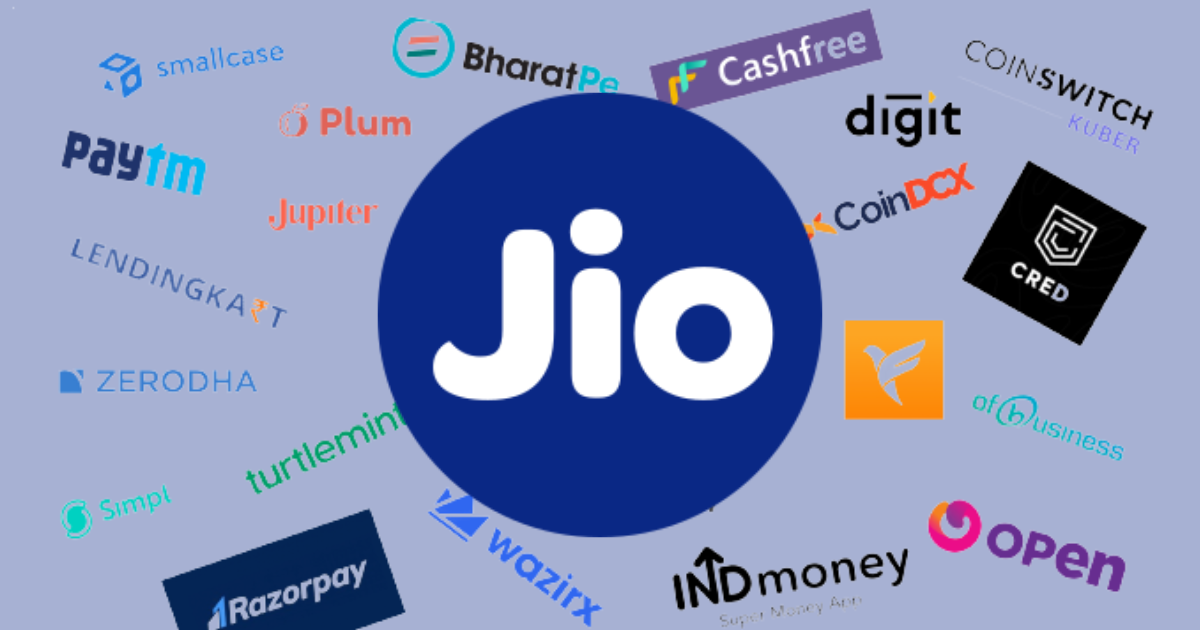Reliance’s ambitious Jio Financial Services (JFS) plans have been unveiled, sending ripples through India’s fintech scene. From payments to insurance and investments, JFS is poised to reshape these sectors and emerge as a formidable competitor to both startups and established BFSI players.
Initial Challenges and Market Reception of Jio financial services
Jio Financial Services recently went public after being demerged from Reliance Industries (RIL). However, its stock faced a rocky start, with several sessions of trading hitting lower circuits. Despite these initial hiccups, JFS claims to be the world’s highest-capitalized financial services platform at inception, underscoring its potential impact.
A Competitive Advantage with Reliance Ecosystem
JFS can leverage Reliance’s robust ecosystem, including the over 439 million Jio subscribers and nearly 250 million registered customers of Reliance Retail. This user base provides a solid foundation for JFS’s expansion.
Impact on Fintech Startups
JFS’s entry poses a challenge for India’s fintech startups, which have previously leveraged Reliance Jio’s services for growth. Now, these startups must not only address revenue concerns but also contend with JFS, which benefits from Reliance’s technological prowess, expansive retail network, and market reach.
Disruption in Asset Management Space
The joint venture between JFS and BlackRock aims to disrupt India’s $540 billion mutual fund industry. This move could impact startups like Zerodha, Paytm Money, INDMoney, and Groww, especially those lacking an Asset Management Company (AMC) license.
Jio financial services Payments Ambitions
JFS plans to offer payments services for consumers and merchants, with a focus on blockchain solutions for security and Central Bank Digital Currency (CBDC) services. This thrust into the payments domain puts JFS. In direct competition with established players like PhonePe, Paytm, Google Pay, and more.
Jio financial services Current Payments Landscape
While Jio launched UPI services in 2020, its market share remains modest compared to major UPI players. JFS is expected to launch a dedicated app for its payments services to increase its market presence.
Insurance Sector Ambitions
JFS will enter the insurance market, offering products in general insurance, health insurance, and life insurance in partnership with global players. This foray could challenge both traditional insurers like LIC, HDFC, and ICICI. And digital-first startups like Go Digit, Acko, and InsuranceDekho.
Also Read: Amazon India Aims to Expand Electric Delivery Fleet to 10,000 EVs by 2025
Fintech Lending and Scaling Strategies
Consumer durable lending, merchant lending, and buy-now-pay-later (BNPL) are areas of focus for JFS. While it may take time to scale its lending operations, JFS’s entry could provide a significant opportunity. Especially for underserved retailers and vendors.
Possible M&A Strategy
Reliance’s history suggests that JFS might pursue both organic and inorganic growth strategies. The conglomerate’s deep pockets could allow it to acquire struggling startups in the fintech space.
As Reliance’s JFS emerges as a multi-faceted player in the fintech landscape, it sets the stage for transformation. Across various sectors and intensifies competition among existing players and startups alike.



![[CITYPNG.COM]White Google Play PlayStore Logo – 1500×1500](https://startupnews.fyi/wp-content/uploads/2025/08/CITYPNG.COMWhite-Google-Play-PlayStore-Logo-1500x1500-1-630x630.png)